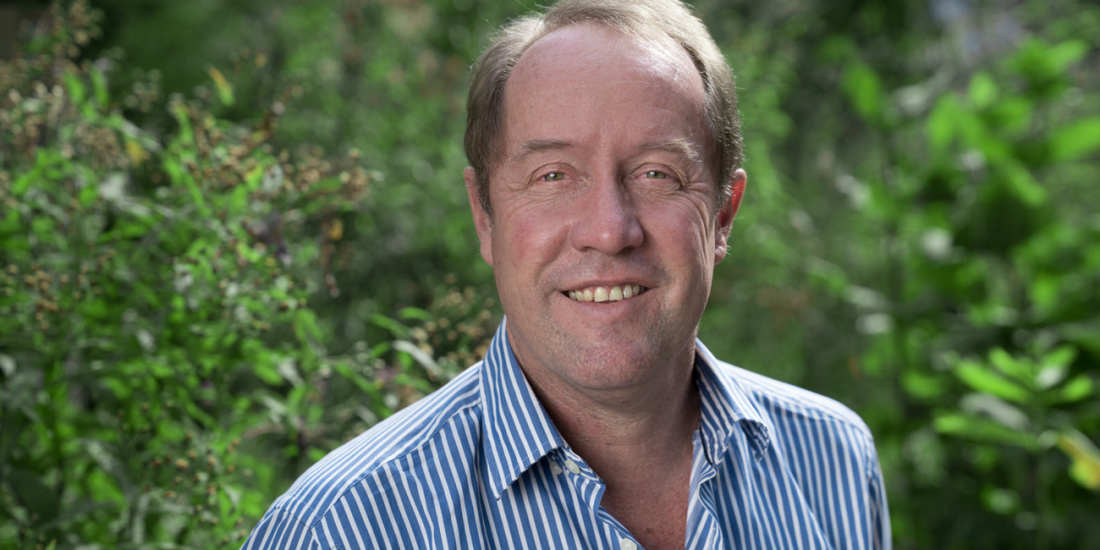Hugh Possingham, conservation scientist and mathematician, World Science Festival Brisbane
Science and maths underpins the world's prosperity – they can be used to save or destroy the planet ...
As Co-Chief Councillor of the Biodiversity Council, Chief Scientist of Accounting for Nature and Professor at The University of Queensland – not to mention previously Queensland Chief Scientist and Chief Scientist of The Nature Conservancy – Professor Hugh Possingham is a very busy person. An expert on conservation theory and mathematics, a considerable portion of Hugh’s work looks to tackle the ongoing climate crisis as it affects animal species and ecosystems. Hugh will be hopping on a number of panels at this year’s World Science Festival Brisbane, discussing topics like assisted migration and bird watching (a passionate hobby of Hugh’s), as well as putting his his brain to the test at variety game show Night of the Nerds. We caught up with Hugh ahead of his appearance to chat about his work and what we can expect from this year’s festival.
To start, we’d love to know what sparked your interest in a career in the sciences – particularly conservation science. Was there anything in particular that encouraged you to make this field an area of expertise?
I was always interested in nature, birds and vegetation in particular. My mother was a physicist, my father an engineer – so I assume I was encouraged. I went to university planning to be a zoologist, however I drifted into biochemistry and mathematics because they both had engaging Professors (Elliot and Potts) at the cutting edge of their professions. As my career progressed, Oxford, Stanford, ANU and back to maths in Adelaide, I more and more realised that I could apply my mathematical skills to solving conservation problems. That was a very unusual thing in the 1990s.
My passion for nature conservation was fuelled by my love of the diversity of life. Birds, orchids, trees etc., I still love to spend a day in the bush, where I can often find (see/hear) 70-to-80 bush birds in a morning. Conservation science is an applied science, like medicine is an applied science, but rather than being dedicated to saving the lives of people, conservation is dedicated to slowing the loss of species and ecosystems. Increasingly conservation research uses knowledge from other fields like maths, economics and the social sciences, combining it with traditional sciences like ecology, chemistry and genetics. Ultimately it has become a very multi-disciplinary pursuit.
You’ll be popping up a few times at this year’s World Science Festival Brisbane, starting with The Future of Conservation panel on Friday March 24. One of the topics covered on the night will be assisted species migration – can you shed any insight into what that is and why it’s important?
Rapid human-induced climate changes means many species will need to move where they live towards the poles (south in Australia) or up mountains, because so many species are sensitive to temperature. For example, there are many temperate rainforest species on the tops of mountains along eastern Australia. As the climate warms, they need to go up, and some will run out of mountain. Similarly there will be species that need to move south but cant move fast enough. One very controversial solution to this problem is ‘assisted migration’ where we intervene and physically move native species outside their normal distribution to climates that will be suitable in a warmer world. Is that wise? Come to the event to discuss.
The climate crisis will no doubt have an ongoing impact on conservation moving forward – in what ways can people help raise awareness or get involved in conservation causes?
There are many not-for profit organisations that people can join to help save animals and plants. These range from the bigger national environmental organisations – such as World Wildlife Fund or BirdLife Australia – to local community groups, Oxley Creek Catchment Association or Save our Waterways Now. Queensland has over a thousand threatened species, all waiting to be saved by you!
On Saturday March 25 you’ll join a panel of experts to discuss the mystery of the buff-breasted button-quail for Rare and Feathered. Before we dig into what’s in store for this event in particular, we’d love to know more about your love of birdwatching. How did you come to pick up the hobby and what would you say is the best thing about it?
My father was a birdwatcher, so at a very early age I had a choice. Either walk through the dry scrub in 40-degree heat or be left under the shade of a bush to fight the ants. Oddly, I chose the former.
Where would you say are the best places to go birdwatching, locally and further abroad?
Brisbane has a huge bird diversity and in Southeast Queensland there are more than 400 species of bird – roughly half of Australia’s diversity. The beauty of birding is you can do it anywhere – you can see tree martins at Roma Street train station or go to Lamington to find the exotic Albert’s lyrebird. My favourite spots are along Oxley Creek. At Oxley Creek Common alone, birders have found 224 species. Gold Creek reservoir has a nice 5-km walk, or if you like shorebirds head down to Manly or Wynuum.
Without giving too much away, can you tell us a bit about the mystery surrounding the buff-breasted button-quail?
There is controversy around whether recent records are this species, or a closely related similar-looking species. It lives in a remote part of Queensland, with relatively few birders. It is hard to find – cryptic you might say. If recent records are not verified, the fear is that it may already be extinct, or close to extinct. That said, I am no expert on this species so that is why I am so happy to discuss the issue and find out more.
You’ll be putting your brain to the test as part of the variety game show Night of the Nerds. Naturally science (particularly conservation science) and birds are your special subjects, but are there any other topics you’re interested in that would make you a valued team member at your local trivia night?
I will be a useless team member. My science general knowledge is negligible. Pity the team that has me on their side.
In your opinion, how important are events like the World Science Festival in making science accessible to all demographics?
Science and maths underpins the world’s prosperity – they can be used to save or destroy the planet. More and more the barriers between these traditional disciplines are being integrated with other ways of knowing – from art to economics, from First People’s knowledge to linguistics. The two greatest existential threats to society, biodiversity loss and climate change, will require all kinds of information to be halted.
The 2023 iteration of World Science Festival Brisbane will be taking place from March 22–26. To have a gander at the program and to purchase tickets, head to the World Science Festival Brisbane website.

